Biotech is rapidly gaining traction in Europe. To help those trying to pick one of the many biotech hubs in Europe, I have compiled a list of where some of the most exciting biotech companies are based.
Currently, biotech is one of the biggest employers in Europe. Whether you love big cities full of opportunities or quiet towns where to find inspiration for your project, there is definitely a place in Europe to match every biotech enthusiast.
To find out which are some of the most active biotech clusters in Europe, I talked to the executive chiefs of multiple biotechs across Europe to ask them what they like the most — and the least — about the cities they are based in.
There are way too many biotech hubs in Europe to fit this list, so we had to stick to a small selection covering a range of different places across Europe as wide as possible. If your favorite biotech city doesn’t happen to be here, feel free to add it in the comments below!
(The cities are ordered alphabetically so nobody gets jealous.)
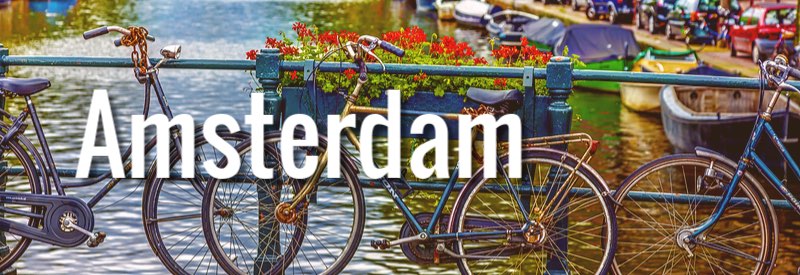
Amsterdam has been hailed as the happiest place to live and work, so no wonder why many biotechs have decided to settle down in this beautiful city. And now that the EMA is relocating from London to Amsterdam, the city is bound to attract more and more biotechs.
The famous canals of the city host the headquarters of uniQure, the first company to ever launch a gene therapy, and Arthrogen, another gene therapy company tackling arthritis. There we can also find Agendia, the developer of a genetic test for breast cancer that helps reduce the use of chemo, as well as Kiadis, whose technology could enable bone marrow transplants without donor matching.
Amsterdam is an epicenter for knowledge in the biotechnology industry. The high-quality infrastructure, a pro-business climate and strategic location, promote Amsterdam as an attractive business climate for startups in biotechnology, Nasdaq-listed companies as uniQure, and even big pharma as Sanofi and Shire. I have no doubt that the move of the European Medicines Agency (EMA) to Amsterdam in 2019, will make Amsterdam even more appealing.”
— Sander van Deventer, CSO of uniQure
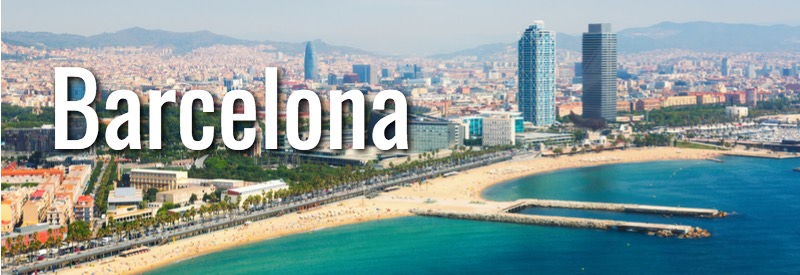
Barcelona has established itself as Spain‘s main biotech hub and is rapidly growing to the scale of many other cities in Europe. Besides multiple biotech companies, the city hosts the headquarters of Ysios Capital, the largest life sciences VC in Spain.
Located in Barcelona are Minoryx Therapeutics, working on rare diseases, as well as multiple startups such as Aelix Therapeutics in the HIV space, Leukos Biotech focusing on leukemia, and Peptomyc fighting cancer.
Fifteen years ago the biotech sector was almost inexistent. Today we have companies leading their corresponding fields, more and more entrepreneurs creating new biotechs, specialized VC investors with international recognition and an administration that is supporting the field. This is very exciting as I have the feeling that altogether we are building a whole new sector that shall become highly valuable for the city and the region.
— Marc Martinell, CEO of Minoryx Therapeutics
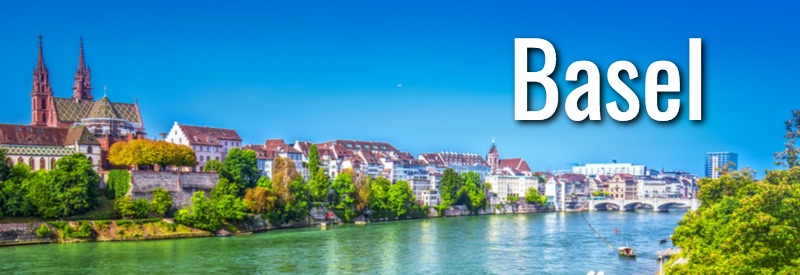
Right at the border between Switzerland, Germany and France, Basel has become a hotspot for biotech and pharma. Actelion, one of the largest companies in the history of European biotech, was born here 20 years ago, culminating its success story in a massive $30Bn acquisition last year.
In Basel we can find top-notch companies such as Actelion’s spin-off Idorsia. There is also a lot of activity surrounding antibiotics, with companies like Basilea, Polyphor, Allecra or Santhera Pharmaceuticals.
The neighborhood with pharma giants Novartis and Roche and showcase biotech companies, such as Actelion and Idorsia, and an increasing number of small and mid-size biotech and pharma companies makes the area a vibrant hotbed for success stories. Access to specialized know-how is just around the corner. Personal contacts between representatives of emerging and established companies are common and there is always excellent advice available.”
— Thomas Meier, CEO of Santhera Pharmaceuticals
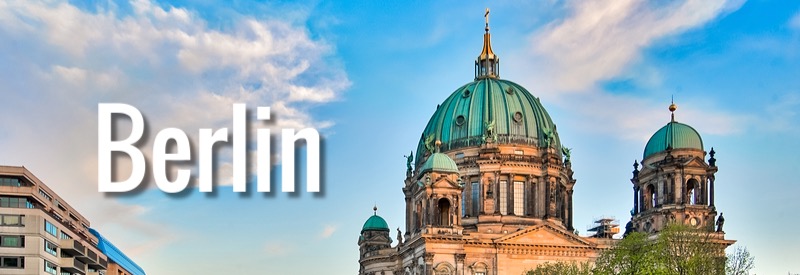
Berlin is a city full of life and well-connected thanks to its prime location at the heart of Europe. Among the companies that have chosen Berlin as its home are Mologen, tackling cancer and HIV with a DNA drug, and RenovaCare, which develops a stem cell gun to heal burns and wounds.
Berlin is known as a startup hub within the tech world, which also extends to biotech startups, such as ImmunoLogik, which aims to stop HIV from becoming resistant to antiretroviral therapy, or Solaga, which uses cyanobacteria to produce biogas.
We value Berlin as an attractive business and technology location. The good networking opportunities to science and the international orientation of the city are very beneficial for us as a biotech company. In addition, many professionals are based here or can be easily “attracted” to move here — certainly also because of the diverse cultural program Berlin has to offer”
— Mariola Söhngen, CEO of Mologen

Although London is known for being expensive, many would agree it compensates the number of opportunities one can find in the city. Last year, London was the European city that received the most life sciences investment. Plus, a lot of conferences take place in the capital, making an ideal networking spot.
It’s no surprise then that we can find all sorts of biotechs in London, from gene therapy firms like Orchard Therapeutics and Nightstar, to cancer companies such as Autolus and Cell Medica, or antimicrobial developers like Motif Bio and ReViral.
London provides many attributes that support biotech companies from start-up to maturity. At Orchard, we have benefited from close collaborations with leading life-science institutions such as UCL. London’s financial community also provides significant advantages, in our case, some of our foundational investors are London based. Furthermore, a London location provides access to substantial talent pools. Orchard was founded in London, and the city has truly supported our growth as a biotech with global aspirations.”
— Mark Rothera, CEO of Orchard Therapeutics
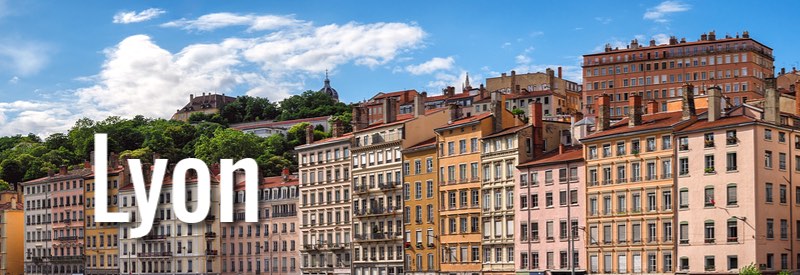
Lyon is the gastronomic capital of France, so the choice is clear for all the biotech gourmets out there when looking for a place to base their company. In particular, Lyon seems to be a hub for biotechs in the diabetes space, including Adocia, Poxel, and Alizé Pharma.
There are also several biotechs working in the area of infectious disease, such as Imaxio in malaria, Fab’entech in influenza and Ebola or Enyo Pharma in hepatitis B. Cancer seems to be another focus in the city with companies like Erytech, APCure or Orega Biotech.
Lyon is the second largest city in France, with a quality of life that is often cited as one of the best in Europe. More than 60,000 people are employed in biotech, pharma and healthcare in Lyon, driving innovation and global excellence in areas as diversified as vaccines, biomedicines and medical devices. The vibrant R&D network weaves together young start-ups, large pharma and distinguished research and education institutions often involved in fruitful partnerships.”
— Gérard Soula, CEO of Adocia
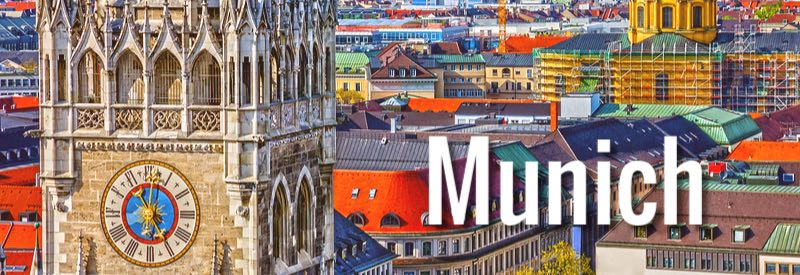
Munich is well known in Germany as a business hub, which has attracted many biotech entrepreneurs to move to the busy city. Biotech companies in Munich tend to concentrate in the southwest district of Planegg. Right there is one of Europe’s largest biotechs: MorphoSys, a billion-euro biotech that develops antibody therapies.
The city is also home to Medigene, which develops T cell receptor technology for cancer and has a billion-euro collaboration with gene giant bluebird bio. Other companies like Wilex, 4SC and Oryx also target cancer from Munich.
The Munich biotech hub is a good mix of established biotech companies and startups, affiliates of multinational pharma firms as well as top universities and scientific research institutes. I like the proximity to peer companies and the opportunity for quick informal meetings with people from other companies, investors or advisors. Furthermore, the Bavarian government has always been very supportive and living in Munich is a real delight, with the nearby mountains, forests, lakes, and world famous cultural events and arts.”
— Simon Moroney, CEO of MorphoSys
Due to world-class universities and research institutes surrounded by an agile biotech-cluster in the greater Munich area, companies like Medigene can rely on plenty of highly-skilled scientist and motivated lab workers. From a business perspective, it is also great to be connected to the world (and investors) by a vibrant and efficient airport.”
— Dolores Schendel, CEO and CSO of Medigene
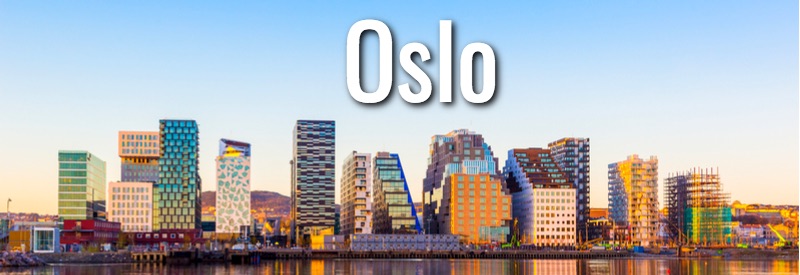
Oslo is becoming a hotspot for Scandinavian biotech, with one of its main strengths being in the area of oncology. Among them are Zelluna, developing T cell receptors; Nordic Nanovector, working on antibody therapies; Targovax using oncolytic viruses; or PCI Biotech producing cancer vaccines.
Outside the oncology space, Oslo is also home to other cool biotechs like AlgiPharma, developing oligomers to fight microbial infections; or Bionor, which is developing a double vaccine intended as a functional HIV cure.
There are several biotech companies and startups in Norway creating momentum of industrial translation. In the context of cancer research, the Oslo Cancer Cluster promotes the setting-up and development of startup companies. Oslo and Norway provide a friendly environment for outsiders to come into. The quality of life and the opportunity to explore nature are significant positive aspects. Even the weather, which I thought was going to be difficult to deal with, is quite manageable and actually quite attractive in the summer!
— Miguel Forte, CEO of Zelluna Immunotherapy

Something I find curious about Oxford is that it seems like one of the requisites to fund a company is to use either Oxford or just “ox” somewhere in the name of the company. One great example is Oxford Nanopore, one of very few European unicorns in the biotech space. This company is making DNA sequencing faster and cheaper with its pocket-sized sequencer.
In the city we can also find Oxford Biomedica working in the gene therapy space, OxSyBio using 3D printing for regenerative medicine, and Oxitec engineering mosquitoes to prevent the spread of Zika, malaria and dengue.
Oxford has many unique advantages as a biotech hub with its proximity to top academic labs and hospitals, easy access to a highly skilled workforce, and the ability to leverage a vibrant entrepreneur and venture capital network.”
— Antonin de Fougerolles, CEO of Evox Therapeutics
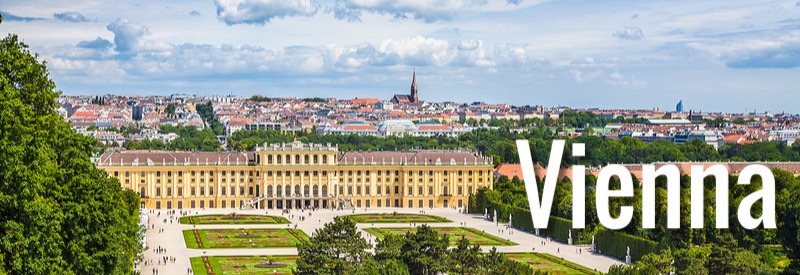
You won’t find a place with more cultural life than Vienna. If you love fancy cafes and classical music, this is the place to look for a biotech job. Especially if you specialize in vaccines, with biotechs like Hookipa, AFFiRis and Themis taking the lead in the city.
Other biotechs in Vienna are Nabriva, developing antibiotics for multi-drug resistant bacteria, or Apeiron in the immuno-oncology field.
The Austrian capital is an important and competitive hub at the center of Europe’s biotech and life sciences industry. Its rich cultural heritage and leading academic institutions provide companies with an outstanding talent pool in a dynamic and intellectually-stimulating environment.”
— Joern Aldag, CEO of Hookipa
Which is your favorite of these biotech hubs? Do you know of other biotech hubs or companies in Europe that deserve to be on this list? Leave a comment below!
This article was originally published in December 2016 and has since been updated.
Images via Shutterstock





